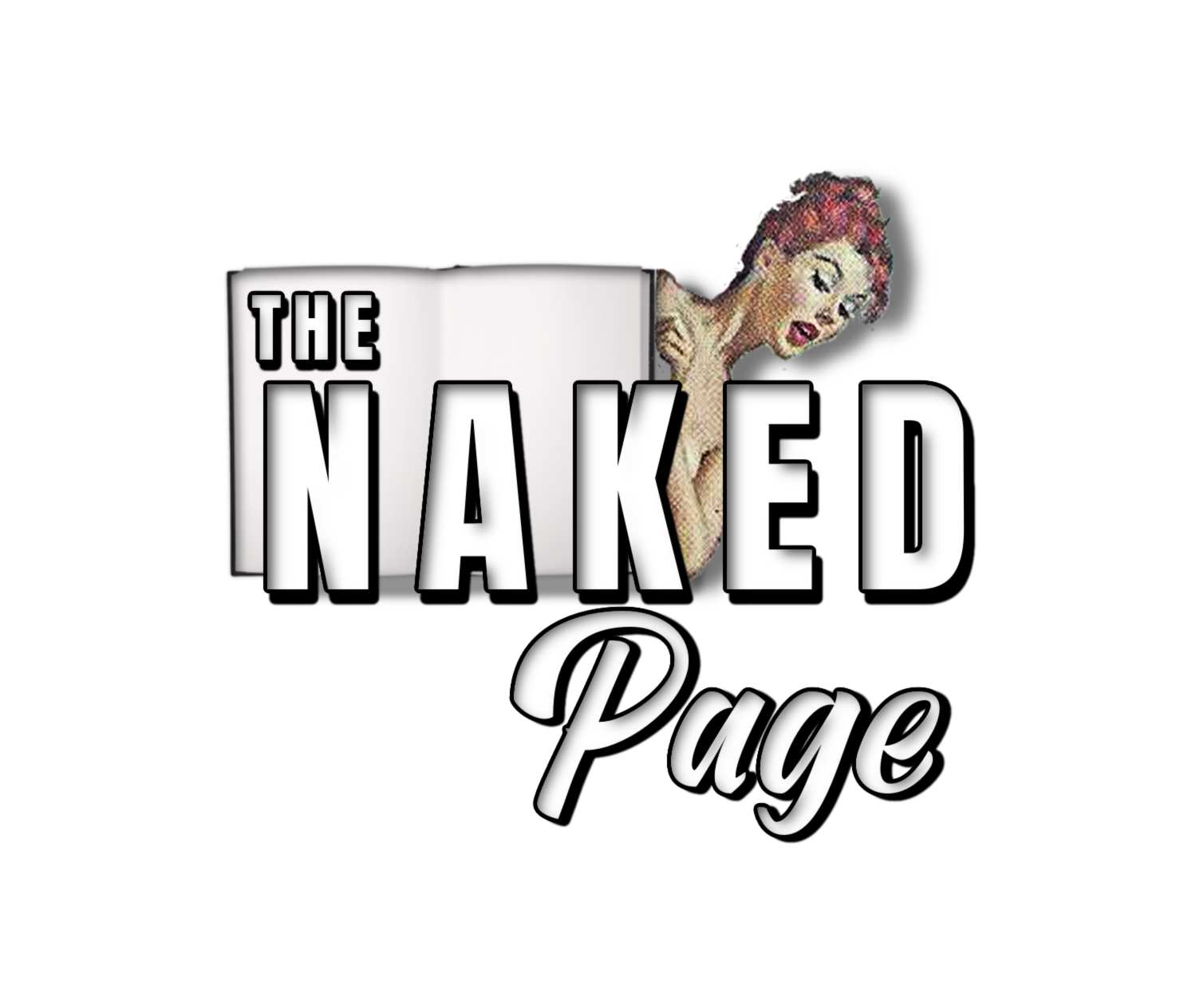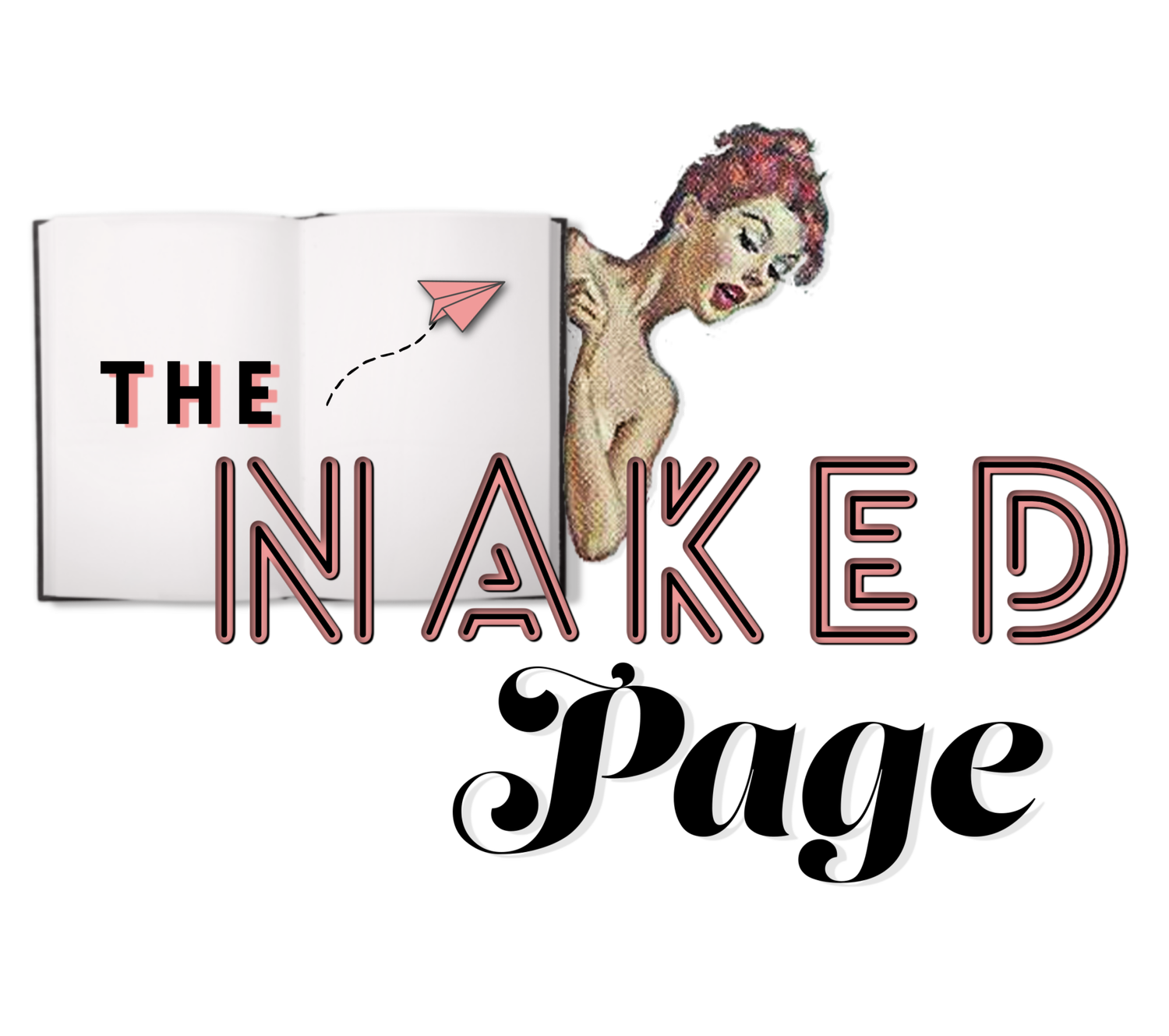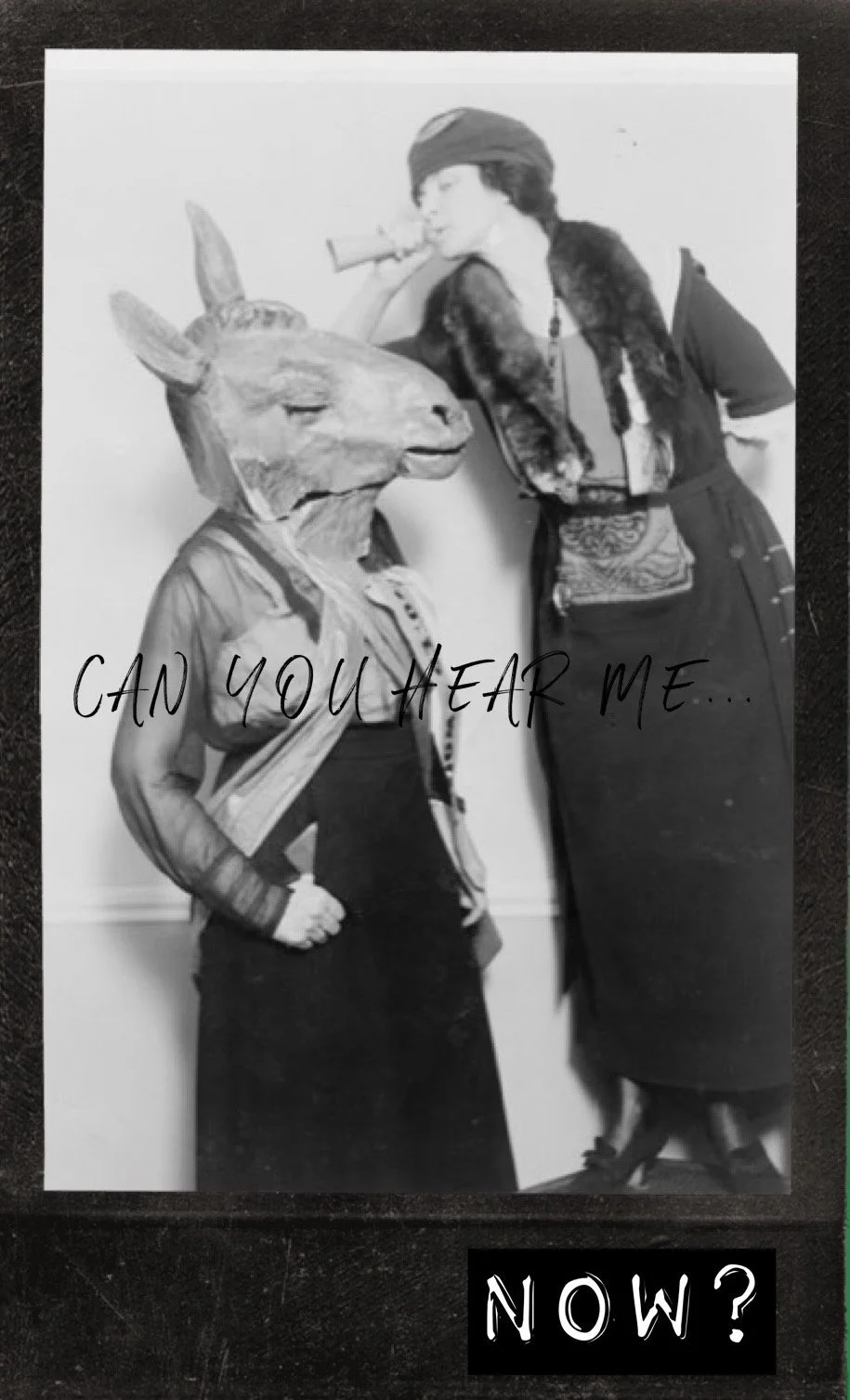How to Listen While You Write
Here’s my most unpopular opinion: Selfie culture sucks!
I’ve never been a fan.
I recently spotted a travel writer on Instagram who was detailing her upcoming trip to Barcelona, Spain.
“I can’t wait to see her pictures,” I thought.
But she never posted any. At least none of her among the city’s landmarks.
She did post a mirror selfie in an airport bathroom before she went overseas. And another one 42 hours later that looked almost identical to the earlier shot—only in front of a different set of public toilets.
I don’t wanna selfie shame the traveler, buuuuuuuutttttt—
I. DON’T. GET. IT.
Since I’m no longer a flight attendant, I was hoping to live vicariously through her. Instead, I’ve been vicariously stranded in two public toilets. And as far as I know, I may still be stuck there.
I’m skeeved out. Concerned for the traveler’s safety. And feeling a bit conned.
This traveler is only an example of a culture we’ve all collectively agreed to uphold.
Am I alone admitting selfie culture confuses me?
By confused I don’t mean I’m unable to figure out how to post my own toilet selfies. No, I just had higher ideals for us as a society when we all got started on platforms like Facebook and Instagram.
Remember that time?
When social media first took off, I thought the point was to show what life was like from our personal vantage point. Me presenting you with images of how I look out at the world.
That makes sense, doesn’t it?
To have the opportunity to move in real time with a poster.
Don’t we all secretly want to know how other people view the world? Our friends? Our boss? Even our significant other?
But instead we’ve shifted to an obsession with turning the world in on ourselves. Our cameras aren’t pointed at what we see, but are turned around capturing us in the crosshairs.
As someone who’s spent a lifetime trying to prove herself in different vocations, having the world stare at me doesn’t feel exciting or innovative.
It feels invasive.
Selfie culture. Online business. Modern Connection.
It’s like the old model—the masculine one—run amok. Whoever screams the loudest gets the most attention and wins.
But I envisioned something more.
A compassionate and connective world of business.
Or at least one where we take turns sharing and listening.
A few years ago, a friend of mine made a profound statement:
“We know how to talk on social media, but we haven’t yet learned how to listen.”
What a lightning bolt idea!
How do we listen on platforms that only reward those who keep chatting?
In real life when we listen to someone, we make understanding sounds like “mm-hmm” or we say, “of course,” or “oh, no.” These reassuring sound bites provide verbal clues that tell the speaker, “I’m present” or “I hear you” without vying for the spotlight.
Unfortunately, you can’t incorporate empathic listening cues online. Or can you?
I’ve been dazzled by some evolved ladies over at the The Conscious Collective on Mighty Networks.
The entire site is set up differently than other social platforms. There are no ads and the conversations feel cozy and connective.
Also, there is no like button. No laughing face grinning in a sarcastic tone at your latest quip. The only button you get on Mighty Networks is a heart to cheer someone.
What does it feel like to be cheered instead of just liked?
Is this new cheer button inching us ever closer to listening online? Maybe, but I’d still prefer a button that made some gentle gasping sounds whenever I revealed a confession or said something too good to be true.
Here’s the best alternative I’ve found:
One of our members operates this fantastic business site called SheSpeaks SheListens.
It’s unlike anything I’ve seen on social media. Here’s a quick overview:
“SheSpeaks SheListens offers you FREE listening online for women from women. 15 minutes for you to speak about whatever you want to.
An opportunity to release, share, let go, unload, vent, express, celebrate, and reflect. No fixing and no advice is given. We just listen!”
If you’re interested in a listening session, you can schedule your free Skype call here: https://www.facebook.com/shespeaksshelistens/
I’ll admit I’m trying to increase my social listening skills, too. So, I volunteered to be a listener for SheSpeaks SheListens. They requested I participate as a speaker in a 15-minute listening session first.
Here’s what happened during my session:
When I first got the call on Skype, I answered it and promptly (but accidentally) hung up on the caller. I was a wee bit nervous.
I’ve literally got nothing to do but talk here. No money is exchanging hands, no job interview is happening, and don’t I always complain to my husband “You’re NOT listening to me!” But give me the opportunity to be heard and I become a total basket case.
When the listener called back, I was ready.
I had refrained from planning out an agenda on what I’d talk about. I wanted to let myself speak organically.
The listener introduced herself. And guided me through 2 deep breaths. This gave the call a meditative vibe.
And then I was given 15 minutes to speak, uninterrupted.
But suddenly talking became sooooooo haaaaarrrrrdddd!
I fumbled. I tripped over my words. I did start to talk like I was being interviewed for a job. Weird.
I developed space filling anxiety. That anxiety where there can be no pregnant pauses. I rushed to fill up the empty space with more and more words.
And then it hit me… I don’t get this opportunity often. Most of my time is vying for verbal space over my daughter’s jabbering or screams. So, I paused… and started to slooooooooow way down.
I let myself take more time when I spoke.
The listener provided a few expressive sighs, plus she laughed at all my jokes—gold star for her! But there were no interruptions, nothing impeding me from expressing myself.
She gave me two verbal cues towards the end. One when I had 5 minutes left. And another with 2 minutes to go.
But I chose to wrap up my thoughts before time was called. I didn’t know what else to do. So, I said, “I’ll just take the last few seconds to think.”
And I sat there in a delightful silence with my listener. It was blissful.
At the end, we took 2 more deep breathes together and she provided a compassionate reflection.
To summarize, she told me:
“I heard you mention your daughter a lot. Everything else you discussed was intellectual, but it was all grounded by your daughter. She seems to be the focal point of your life. She brings you into the present moment and the physical world. She’s like a teacher for you.”
And then the damn broke and my eyes flooded with tears.
WOW! I’m telling you that session was profound. What a fantastic listener. The call held therapeutic ground without being therapy.
I wish there were more ways to flex our listening muscles online.
Women especially should experience what it feels like to really be heard.
So, how do you listen when you’re writing your memoir?
Is it possible to incorporate listening skills into writing at all?
Can you still contribute something positive in a world full of noise?
I would say emphatically YES! But you must realize how you’re listening.
I recently sent an email to a company inquiring about an item I returned to them from a recent purchase. After many days, I still hadn’t received a reply. But during my wait, I did receive three automated emails from the same company with a subject line stating, “we haven’t heard from you in a while.”
Really? I eye-rolled so hard.
This automated nonsense is a great way to show customers, clients, or readers you’re not listening. How can you be? You aren’t even there.
On the other hand, I’ve been a flight attendant, a teacher, and a theatre performer. In each profession, the way we described our physical positions was always from the vantage point of the passengers, students, and audience. I still don’t know my right from my left.
But I’ve learned this is an example of listening.
Listening doesn’t have to be complex. And it doesn’t all happen with our ears.
Most people jump into memoir creation thinking they’re writing about themselves.
This can slow your progress because 1) You become super self-conscious thinking the whole world is watching you. 2) You soon realize nobody’s paying any attention so you become obsessed with why you’re not being seen.
I’m going to challenge you to see your memoir writing differently.
Tell yourself, “I’m not writing a book about me. I’m writing a book about an experience. A turning point. A universal theme. Something many people can relate to. I’m merely the conduit for the experience.”
A bit of tough love incoming—stop with the bloody self-focus! It’s not helping you.
Nobody really cares about you.
At least not the way you think they care.
They aren’t watching your hair turn grey or seeing those extra 20 pounds. If you see your memoir like you see your reflection in a mirror, you’ll become another self-absorbed voice adding to the cacophony.
An audience is looking at your memoir as a guidebook. A blueprint to navigate tough terrain. Because if you can face challenges in this life, well, maybe your readers can do it, too.
Do what exactly?
Cope. Drive out sadness. Rise above fear. Conquer anxiety. Reign.
Readers don’t need your perfection.
Show them how you look out at the world. Warts and all. We need your stumbling blocks and struggles. Your failures. That’s why we read memoirs. To learn how to use someone else’s life as a map.
It’s your experiences we want to live through, not some perfect Instagram life. Okay, so I like to perfect my Instagram pics, too. But when you’re writing, we need substance, no matter how raw it gets.
Think of it as the difference between your audience watching you get primped for a night out vs. your audience watching you discover your birth mother a year after she’s passed away.
See the difference?
You’re definitely in both pictures. But we need to explore the world with you. Not just stare at you. (I’ve italicized so many prepositions in this blog post.)
We need your triumphs. Your setbacks. Your road less traveled. Take us along for the ride.
Also give us the hard stuff, the scary stuff, the stuff you wouldn’t tell your mother.
If you tell me we’re going to Barcelona and all I see are pictures inside an airport bathroom, I’m going to call shenanigans on the whole trip. And I’m no longer going to trust you as my memoir tour guide.
Your failures don’t make you a failure. Only your inability to lead us through them does.
This is the way we listen to an audience as we write. By understanding what our readers need from us throughout our storytelling process.
Sounds strange, I know.
But you can include your audience in each step of the writing process. And I don’t mean documenting your word count on Twitter.
Think about your reader.
Have us tag along through each part of your journey.
Imagine you’ve got to show us the full picture of what you’re experiencing. We can’t see what you see or feel what you feel. We depend on your words to fill in the gaps. Never lock us out of anything instrumental in your journey. No matter how rough or ugly or frightening.
You survived it. So can we, especially if we have you to guide us.
Here are some suggestions for listening to your audience while writing a memoir:
Envision a physical manifestation of your reader before you write. Even better, pick a real person you know. When you write, tell your story directly to that person.
Let that real person read your manuscript. Or read a chapter to them. Consider any feedback they give you. Sit with your reader’s comments before making any revisions. What’s coming up for you?
Use voice software to read your manuscript. Listen to your story like you’re a reader. How does someone else’s voice inform your story?
Let your manuscript sit for a week or more. When you reread it, do so at vastly different times: morning, midday, middle of the night. Reread it during different moods: somber, silly, drunk, sober. Does anything not ring true when you shift your time or tone?
Write a summary of one chapter. Ask someone who’s read your manuscript to provide a summary of the same chapter. How do these two summaries compare? Are there places where you had an intended outcome and your reader heard something different?
Commit to listening more in real life. When you ask someone “how’s it going?” really listen for an answer. If you don’t get one, dig a little deeper. “No, really, how are you doing?” Find out. Don’t just skim the surface.
We’ve got a long way to go to become a society of better listeners. But we can do it!
There are also huge benefits for you when you apply listening skills to your writing:
You realize you don’t have to strive so hard to be perfect.
You discover a conversation between you and your readers.
You worry less about grammar and focus on the big ideas.
I’d love to say I’m an excellent listener, but I realize I have plenty of work to do here.
What other ways can you improve your listening skills?


